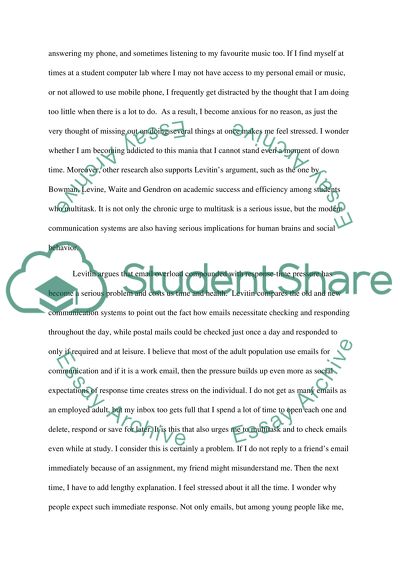Cite this document
(“Why the modern world is bad for your brain by Daniel J Levitin Essay - 220”, n.d.)
Why the modern world is bad for your brain by Daniel J Levitin Essay - 220. Retrieved from https://studentshare.org/information-technology/1680649-essay
Why the modern world is bad for your brain by Daniel J Levitin Essay - 220. Retrieved from https://studentshare.org/information-technology/1680649-essay
(Why the Modern World Is Bad for Your Brain by Daniel J Levitin Essay - 220)
Why the Modern World Is Bad for Your Brain by Daniel J Levitin Essay - 220. https://studentshare.org/information-technology/1680649-essay.
Why the Modern World Is Bad for Your Brain by Daniel J Levitin Essay - 220. https://studentshare.org/information-technology/1680649-essay.
“Why the Modern World Is Bad for Your Brain by Daniel J Levitin Essay - 220”, n.d. https://studentshare.org/information-technology/1680649-essay.


